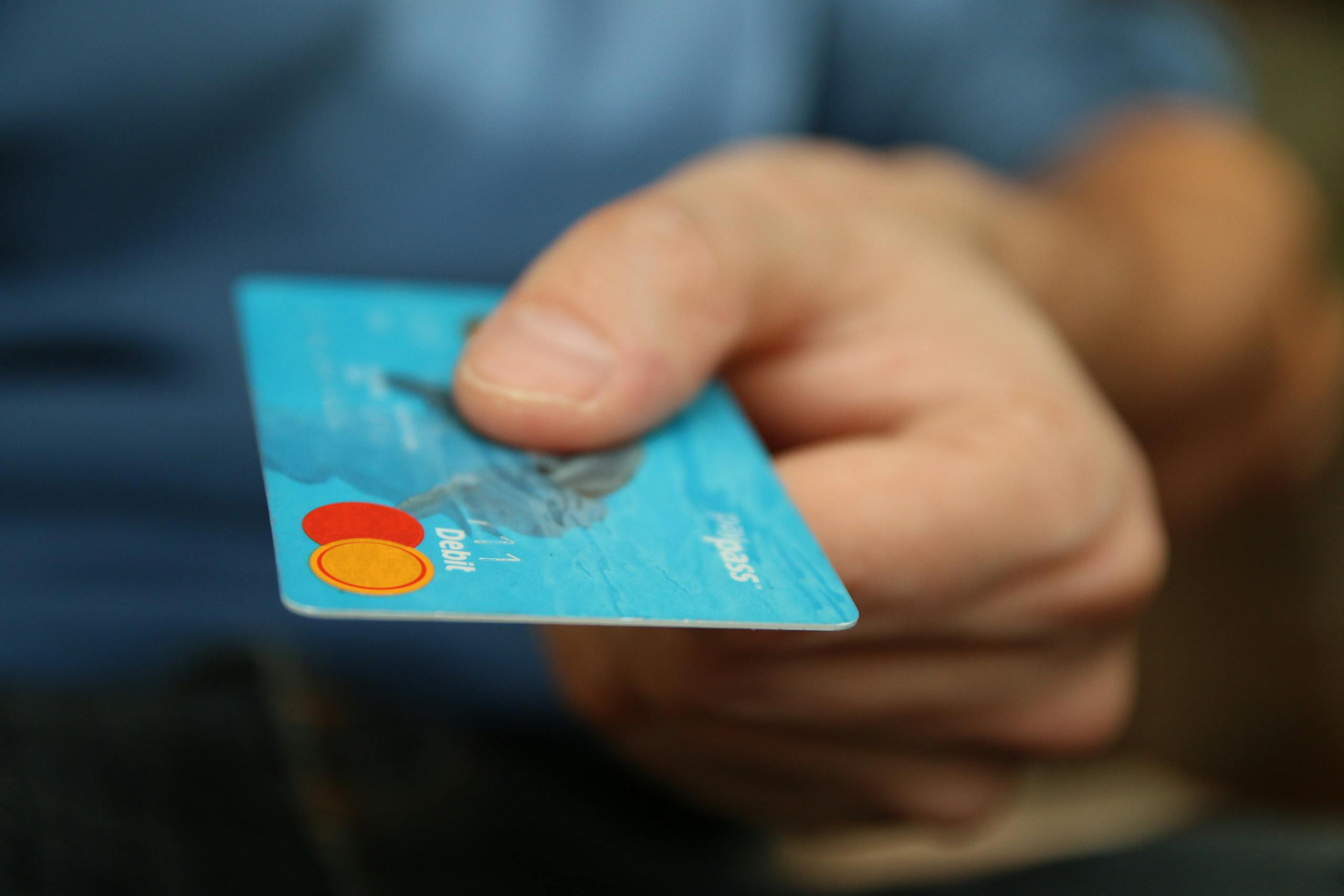Resist Daily Temptations to Boost Your Bank Account
There are some affiliate links below, but they are all products I highly recommend. For more info, view my disclosure here.
Are you tired of constantly feeling like your bank account is running on empty? Do you wish you could have more money to save, invest, or simply enjoy life a little more? Well, the good news is that you have more control over your finances than you may think. By learning to decline daily temptations, you can boost your bank account and take charge of your financial future.
In this article, we will explore various strategies to help you resist the urge to splurge and make smarter choices with your money. You will discover how to identify your spending triggers, create a realistic budget, and set achievable financial goals. We will also discuss the power of delayed gratification and how it can help you resist impulse purchases.
Additionally, we will explore the value of finding free or low-cost alternatives, as well as utilizing cashback and rewards programs to earn extra money. Seeking support and accountability, as well as celebrating small victories along the way, will also be discussed.
So, if you’re ready to take control of your finances and boost your bank account, let’s dive in and start declining those daily temptations!
Identifying Your Spending Triggers
Identifying your spending triggers is crucial in gaining control over your finances and breaking the cycle of impulsive purchases. It’s important to recognize the situations, emotions, or thoughts that lead you to spend money unnecessarily. By understanding your spending triggers, you can take proactive steps to avoid or manage them, ultimately boosting your bank account.
One common spending trigger is stress. When you’re feeling overwhelmed or anxious, you may turn to retail therapy as a way to cope. Recognizing this trigger allows you to find healthier alternatives, like exercise or meditation, to manage stress instead of reaching for your wallet.
Another trigger is boredom. When you find yourself with free time and nothing to do, you may be tempted to go shopping or indulge in online browsing. By identifying this trigger, you can find alternative activities that don’t involve spending money, such as reading a book, going for a walk, or pursuing a hobby.
Social situations can also be a trigger for spending. When you’re out with friends or attending events, the pressure to keep up with the group’s spending habits can be strong. Being aware of this trigger allows you to set boundaries and be more mindful of your own financial goals.
Identifying your spending triggers is the first step towards regaining control over your finances. By understanding the situations and emotions that lead you to spend impulsively, you can make conscious choices that align with your financial goals and boost your bank account.
Creating a Budget and Setting Financial Goals
Start by mapping out a budget and setting clear financial goals so you can make the most of your money and achieve your dreams.
Creating a budget is essential for managing your finances and gaining control over your spending habits. Begin by listing all your sources of income and then determine your fixed expenses, such as rent or mortgage payments, utility bills, and debt repayments.
Next, identify your variable expenses, such as groceries, entertainment, and dining out. Allocate a specific amount of money for each category and stick to it. This will help you prioritize your spending and avoid unnecessary expenses.
Setting financial goals is equally important. Think about what you want to achieve in the short term and long term. Do you want to save for a down payment on a house? Pay off your student loans? Take a dream vacation? Whatever your goals may be, be specific and realistic.
Break them down into smaller, actionable steps and set deadlines for each milestone. This will help you stay motivated and focused on your financial journey.
By creating a budget and setting financial goals, you can take control of your finances and make informed decisions about your spending. It will enable you to save money, pay off debts, and ultimately boost your bank account. Remember, it’s all about making conscious choices and staying committed to your financial plan.
So, start today and watch your bank account grow.
Practicing Delayed Gratification
Practicing delayed gratification allows you to enjoy the satisfaction of achieving long-term financial goals while resisting the allure of immediate rewards. It’s all about having the discipline to say no to daily temptations and focusing on the bigger picture.
We live in a world of instant gratification, where we can order anything with a click of a button and have it delivered to our doorstep within hours. However, constantly giving in to these impulses can be detrimental to our bank accounts.
By delaying gratification, you are able to prioritize your long-term financial stability. Instead of splurging on unnecessary purchases, you can save and invest that money for future goals, such as buying a house or retiring comfortably. It’s important to remind yourself of the bigger reward that awaits you in the future.
One effective way to practice delayed gratification is by setting specific financial goals and creating a plan to achieve them. This gives you a clear roadmap to follow and helps you stay on track when faced with tempting distractions. Additionally, it’s helpful to surround yourself with like-minded individuals who also value delayed gratification. Their support and encouragement can make it easier to resist immediate rewards.
Remember, practicing delayed gratification is not about depriving yourself of all pleasures. It’s about making conscious choices and finding a balance between enjoying the present and securing your financial future. So, next time you’re tempted to make an impulse purchase, take a step back, think about your long-term goals, and make a decision that aligns with your financial aspirations. Your bank account will thank you in the long run.
Finding Free or Low-Cost Alternatives
Instead of constantly giving in to the allure of immediate rewards, try exploring free or low-cost alternatives to save money and still enjoy life.
There are plenty of options out there if you’re willing to look. Instead of going out for an expensive dinner, why not have a picnic in the park with friends or family? You can pack a simple meal and enjoy the fresh air at the same time.
If you’re a movie lover, consider having a movie night at home instead of going to the theater. You can make some popcorn, snuggle up on the couch, and have a cozy movie night without spending a fortune.
Another great way to save money is by taking advantage of free community events. Many cities have free concerts, art exhibits, and festivals that you can attend to have a great time without spending a dime.
Additionally, instead of buying new books or movies, check out your local library. They often have a wide selection of materials that you can borrow for free.
By seeking out these free or low-cost alternatives, you can still have fun and save money at the same time.
Utilizing Cashback and Rewards Programs
Maximize your savings by using cashback and rewards programs, turning your everyday purchases into opportunities to earn money back and enjoy exclusive benefits.
These programs are designed to give you a little something extra every time you make a purchase. By signing up for these programs and using them consistently, you can significantly boost your bank account.
Cashback programs allow you to earn a percentage of your purchase back in cash. It’s like getting a discount on every purchase you make. Simply link your credit or debit card to the program and start earning cashback on eligible purchases. Some programs even offer higher cashback rates for specific categories, such as groceries or gas. By taking advantage of these offers, you can save money on your regular expenses.
Rewards programs, on the other hand, allow you to earn points or rewards for your purchases. These points can then be redeemed for various benefits, such as gift cards, travel discounts, or free merchandise. Many rewards programs also offer special promotions and bonuses, allowing you to earn even more points. By strategically using these rewards, you can enjoy additional perks while saving money.
To make the most of cashback and rewards programs, it’s important to be mindful of your spending. Stick to your budget and only make purchases that you would have made anyway. Avoid the temptation to overspend just to earn more cashback or rewards. By using these programs wisely, you can boost your bank account without sacrificing your financial goals.
Seeking Support and Accountability
When you seek support and accountability, you can find the guidance and motivation needed to stay on track with your financial goals. It’s easy to get tempted by daily indulgences and lose sight of your savings objectives. However, having someone to hold you accountable can make a world of difference.
Whether it’s a friend, family member, or even a financial advisor, having someone to check in with regularly can help you stay focused and motivated. An accountability partner can help you make smarter financial decisions by offering a fresh perspective. They can remind you of your goals when you’re tempted to splurge on unnecessary purchases. Additionally, they can provide support when you’re feeling discouraged or overwhelmed. Sometimes, all it takes is a friendly reminder to keep you from making impulsive financial choices.
In addition to moral support, an accountability partner can also help you create a budget and stick to it. They can provide guidance on how to save more effectively and suggest strategies to avoid unnecessary spending. By sharing your financial goals and progress with someone else, you can stay motivated and committed to your objectives.
Remember, seeking support and accountability doesn’t mean you’re weak or incapable of managing your own finances. It simply means you recognize the value of having someone by your side to help you stay on track. So, don’t hesitate to reach out and find someone who can provide the guidance and motivation you need to boost your bank account.
Celebrating Small Victories
Celebrate the small victories along your financial journey, like treating yourself to a nice dinner or buying that book you’ve been wanting, to keep yourself motivated and inspired.
It’s easy to get discouraged when you’re trying to save money and decline daily temptations, but it’s important to recognize and appreciate the progress you’re making.
By celebrating the small victories, you’re acknowledging your hard work and reminding yourself that you’re moving in the right direction.
When you resist the urge to splurge on that expensive pair of shoes or pass up on that tempting dessert, take a moment to pat yourself on the back.
Give yourself a little treat or reward for your self-control. It doesn’t have to be something extravagant; it can be as simple as enjoying a cup of your favorite tea or taking a relaxing bath.
The key is to acknowledge and appreciate the small steps you’re taking towards your financial goals.
Not only does celebrating small victories help to keep you motivated, but it also serves as a reminder of the bigger picture.
Each time you resist a temptation, you’re one step closer to achieving financial freedom and reaching your goals.
It’s easy to lose sight of this when you’re constantly bombarded with advertisements and societal pressures to spend.
By celebrating the small victories, you’re reinforcing the importance of your financial journey and reminding yourself of the ultimate reward that awaits you.
So the next time you make a conscious decision to decline a daily temptation, take a moment to celebrate.
Treat yourself, appreciate your progress, and keep moving forward.
Remember, every small victory brings you closer to a boosted bank account and a brighter financial future.





